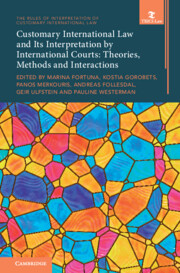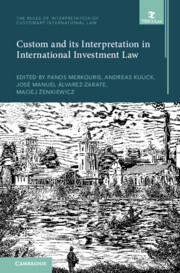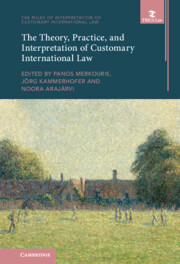3 results in The Rules of Interpretation of Customary International Law

Customary International Law and Its Interpretation by International Courts
- Theories, Methods and Interactions
-
- Published online:
- 22 November 2024
- Print publication:
- 28 November 2024
-
- Book
-
- You have access
- Open access
- Export citation

Custom and its Interpretation in International Investment Law
-
- Published online:
- 04 January 2024
- Print publication:
- 18 January 2024
-
- Book
-
- You have access
- Open access
- Export citation

The Theory, Practice, and Interpretation of Customary International Law
-
- Published online:
- 05 May 2022
- Print publication:
- 26 May 2022
-
- Book
-
- You have access
- Open access
- Export citation

